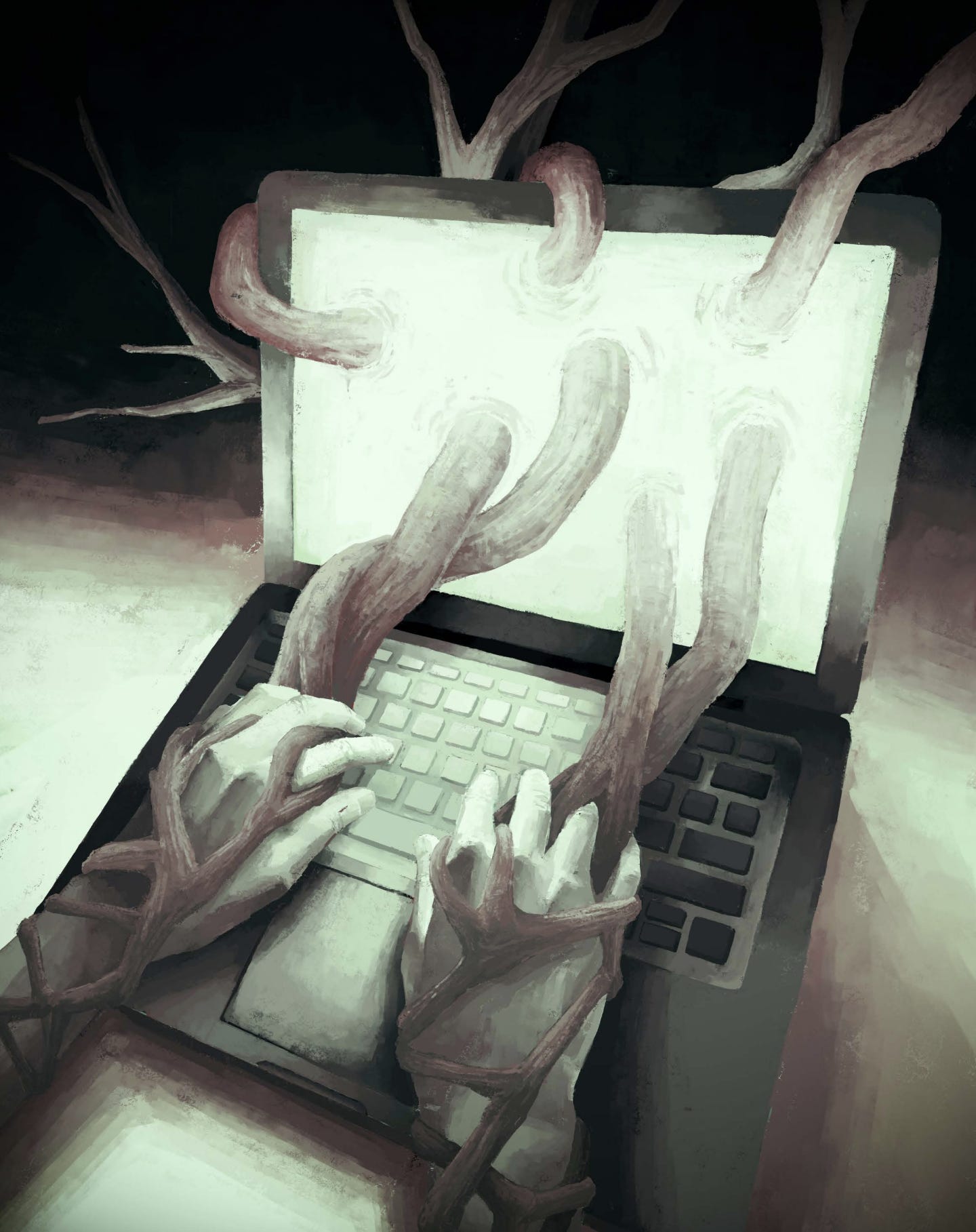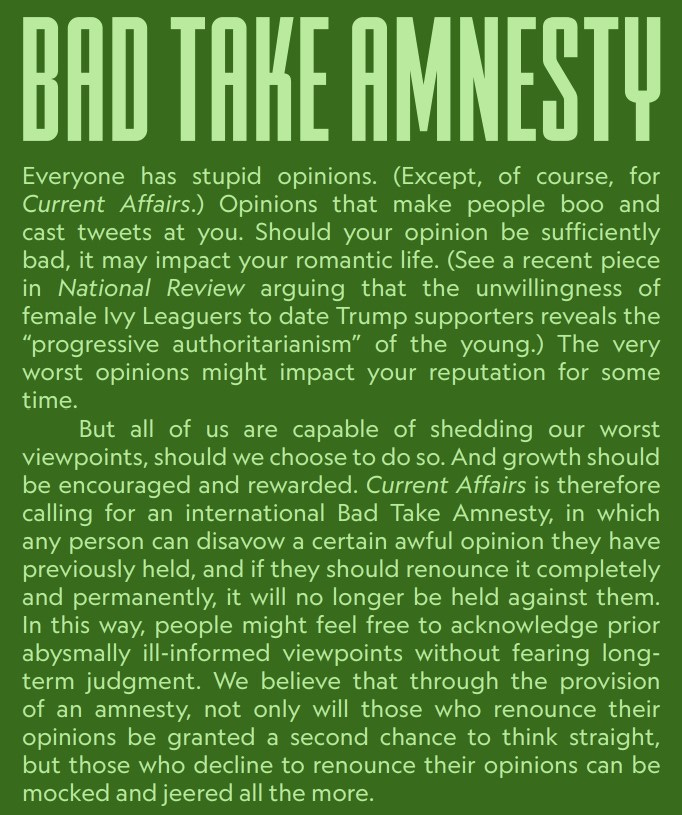Sept. 1, 2023 ❧ Drug price negotiations, workers' rights in Texas, Hurricane Idalia, and another West African coup...
Plus web censorship, wage theft, trans rights, the SATs, and another impossibly round bird!
This is an extremely special edition of the Current Affairs News Briefing. That’s right, it’s our Silver Jubilee Issue. This is Briefing #25. We are delighted that the briefing has been growing at the pace it as, allowing us to get this far. We are well on our way to be able to fully pay for the research, writing, fact-checking, and editing that goes into these briefings, so thank you to all of the subscribers who have made it possible to sustain the project so far! It’s looking like at 25, we’re just getting started, and will continually be improving this newsletter to make it that rare something you actually ENJOY seeing pop into your inbox! Onward!
STORIES THAT SHOULD BE BIGGER
UPS DRIVER DIES AFTER WORKING IN EXTREME HEAT
In Texas, 57-year-old UPS driver Christopher Begley has died after working in extreme heat. Begley collapsed during a shift on August 23rd, when temperatures in Farmersville, Texas reached 101 degrees Fahrenheit. After he made an emergency call to his supervisors, UPS says it “made sure he had water and was resting in a cool environment,” and sent him home early. However, this was too little, too late. Just a few days later, Begley was hospitalized, and he died on August 27th. Although a cause of death has yet to be confirmed, it doesn’t take a huge stretch of the imagination to see that complications from heatstroke were likely involved. The real question, as Current Affairs recently posed it, is why companies like UPS are allowed to send people to work in hazardous heat conditions at all. Currently, the company does not provide air conditioning in any of its carrier vehicles, and while that’s set to change in 2024, it’s only as a result of hard-fought negotiations and the threat of a strike by the Teamsters union. What’s needed are comprehensive laws protecting workers from extreme heat—but policymakers and corporate bosses have both been reluctant to consider them. As the climate crisis deepens, the blood and suffering of countless working people is on these leaders’ hands.

TEXAS JUDGE STRIKES DOWN ABBOTT’S ANTI-WORKER “DEATH STAR” LAW
A Texas judge just struck down a law that made it illegal for cities to pass most local ordinances, including ones requiring employers to provide workers with water breaks.
The law—dubbed the “Death Star” law by opponents, which Governor Greg Abbott signed this June, prevents cities from passing any law not “explicitly authorized” by state codes, which means it would effectively outlaw city laws mandating paid sick leave, protections for tenants facing evictions, and paid overtime. Governor Greg Abbott, said these “burdensome regulations are an obstacle to [small businesses’] success” (It’s quite damning to suggest that small businesses can’t survive if they provide their employees with things as basic as water breaks and sick leave). This bill was one of the more than 500 “preemption” bills introduced around the country. Texas’ is one of many sponsored by business lobbying interests, including the infamous fount of pro-corporate right-wing legislation known as the American Legislative Exchange Council (ALEC), which has sought to give conservative states veto power over progressive cities for years.
Texas’ bill was struck down after Houston, El Paso, and San Antonio sued the state of Texas, saying the bill conflicted with a “home rule” provision in the state constitution allowing municipalities to pass any law not specifically forbidden by the state. Many of these local ordinances were voted on by constituents through public referendums. As Gus Bova wrote in the Texas Observer, “In essence, the Legislature decided there was too much Democracy afoot in Texas, so it did something about it.” A coalition of Texas labor groups, including the Texas AFL-CIO, says that the state ruling against the bill “allows critical, life-saving local policies to remain in place…reflecting the importance of local leaders being able to respond to their communities’ urgent needs.” For the moment, this is true, but there is a good chance that this ruling could be overturned by Texas’ entirely Republican Supreme Court.
TEN DRUGS NAMED FOR MEDICARE PRICE NEGOTIATIONS
Last year, the Inflation Reduction Act granted the government the power to negotiate the prices of some prescription drugs using Medicare Part D. This week, the Biden administration unveiled the first ten drugs that Medicare will attempt to negotiate—these are drugs estimated to account for the highest amount of Medicare spending. As described by The New York Times, the drugs that will be negotiated will include:
1. Eliquis, for preventing strokes and blood clots, from Bristol Myers Squibb and Pfizer
2. Jardiance, for diabetes and heart failure, from Boehringer Ingelheim and Eli Lilly
3. Xarelto, for preventing strokes and blood clots, from Johnson & Johnson
4. Januvia, for diabetes, from Merck
5. Farxiga, for diabetes, heart failure and chronic kidney disease, from AstraZeneca
6. Entresto, for heart failure, from Novartis
7. Enbrel, for arthritis and other autoimmune conditions, from Amgen
8. Imbruvica, for blood cancers, from AbbVie and Johnson & Johnson
9. Stelara, for Crohn’s disease, from Johnson & Johnson
10. Fiasp and NovoLog insulin products, for diabetes, from Novo Nordisk
While Medicare—which only covers Americans over 65—will do the negotiations, they are a large enough purchaser of pharmaceuticals that they can significantly influence the costs of drugs across the market (For the record, this bargaining power to lower drug prices is also one of the under-discussed benefits of implementing Medicare-for-All).
Medicare Part D enrollees paid $3.4 billion in out of pocket costs for these drugs in 2022. Meanwhile, one in five seniors has reported skipping doses because they cannot afford the cost of medication. Medicare recipients are already projected to save about $400 a year on drug costs in 2025 as a result of the IRA’s $2,000 cap on out-of-pocket spending and some other IRA provisions. However, the new prices will not be agreed upon until September 2024, and will not go into effect until the beginning of 2026. These will also not be the only drugs Medicare will attempt to negotiate—it will select 15 more in 2027 and again in 2028, then negotiate another 20 each year afterward. The Congressional Budget Office estimates that drug negotiations will save the federal government nearly $100 billion by 2031.
Since 1980, the share of total healthcare spending put towards prescription drugs has nearly doubled. This provision in the IRA is the first real effort by Congress to regulate prescription drug prices since the Affordable Care Act in 2010. But, it did not lift the 2003 ban on the government’s ability to negotiate the prices of prescription drugs. More than ten years after the ACA’s passage, around three in 10 Americans still say they have avoided taking medications as prescribed as a result of high costs. Americans, on the whole, spend twice as much on prescription drugs as peer countries—many of which have single-payer systems that negotiate with drug companies.
The pharmaceutical industry, recognizing the importance of ensuring that everyone has access to life-saving drugs, has been eager to negotiate prices under the new IRA.
Just kidding! They are fighting this law with everything they have. Their lobbying group, PhARMA has filed eight lawsuits in nearly every circuit court in the country. (They’ve enlisted the legal services or firms and lawyers who previously worked with Trump —including Jones Day which represented his campaign in 2016 and 2020, and former U.S. solicitor general Noel Francisco who defended his Muslim travel ban). As Ananya Kalahasti and Will Royce write in The American Prospect, the constitutional arguments the pharmaceutical industry is attempting to use are absurd, but it’s not implausible that they could work:
The lawsuits trot out a range of arguments, often employing hilariously indignant language (Merck refers to negotiations as “political kabuki theater” and “tantamount to extortion” in its initial complaint). But there are a few threads of argument as to how mandatory negotiations could be considered unconstitutional. The most prevalent alleges that the language in the bill essentially authorizes the unjust taking of property, which the industry says violates the takings clause of the Fifth Amendment. Another is that the legislation forces drug companies to say that the price resulting from negotiations is “fair,” which would violate their First Amendment rights by making them engage in speech they disagree with. Other arguments center around the Fifth Amendment’s due process clause and the Eighth Amendment’s excessive fines clause. The substance of the arguments is barely even worth discussing—as some have noted, the negotiating process set out in the IRA is extremely weak compared with those of peer nations. As the Justice Department argued in the Chamber of Commerce’s case, these lawsuits are “little more than a dispute with the policy choices made by Congress, masquerading as constitutional theory.” Suing is just the thing you do after lobbying fails. Most legal scholars who have weighed in on the matter contend that Big Pharma’s arguments are unsound. But at the same time, many are quick to point out that long-standing legal precedent is no obstacle for this billionaire-friendly Supreme Court, and it seems that given its choice of representation, Big Pharma is prepared for the cases to get that far.
ANSWERS AT THE END OF THE BRIEFING
BIG STORY
RECORD-BREAKING HURRICANE IDALIA PUMMELS THE SOUTHEAST
Joining an ever-growing list of extreme weather events, Hurricane Idalia made landfall in the U.S. around 7:25 a.m. on Wednesday, striking the coast of Florida with 125-mph winds. The storm had gained in strength as it crossed the Caribbean, passing over the western tip of Cuba and causing flooding and evacuations in the province of Pinar del Río. At that time, Idalia was transitioning from a tropical storm to a Category 1 hurricane; when it came ashore in Florida’s Big Bend region, its wind speeds had escalated to Category 3. The hurricane created more than 8 feet of storm surge in Cedar Key, breaking records set by Hurricane Hermine in 2016. Cutting a swathe across the Panhandle, Idalia crossed next into Georgia and South Carolina, where it weakened to a tropical storm before reemerging into the Atlantic.

As Orlando-based news station WESH reports, the damage it leaves behind is extensive:
In the town of Perry, the wind blew out store windows, tore siding off buildings and overturned a gas station canopy. Interstate 275 in Tampa was partially flooded, and toppled power lines closed northbound Interstate 75 just south of Valdosta, Georgia. About 200 miles to the south of where Idalia made landfall, the roads around the chic shops and restaurants of St. Armands Circle in the Sarasota area were underwater. Astounded by the flooding that turned Tampa’s Bayshore Boulevard into a river, Bill Hall watched a paddleboarder ride along the major thoroughfare. “This is actually unbelievable,” Hall said. “I haven’t seen anything like this in years.”
Tropical storms like Idalia get their energy from warm waters; according to NOAA, they need ocean temperatures of 80 degrees Fahrenheit, extending to a depth of 150 feet, to form in the first place. The warmer the seas, the more energy the storms have to fuel them, and the stronger they grow. Rising ocean temperatures have also killed 14 percent of the world's coral reefs, which serve as an important buffer against waves and storms. In this way, climate change caused by fossil fuel emissions has intensified hurricanes, and left coastlines increasingly unprotected. Recent scientific studies have found that the number of hurricanes to reach categories 4 and 5 has “roughly doubled” since 1975, and the risk that two hurricanes will hit the same area in quick succession—as Katrina and Rita notoriously did in 2005—has increased dramatically.

At the time of writing, Idalia’s death toll stands at three: two motorists who lost control of their vehicles in Florida because of the heavy rain, and a man in Georgia who was trying to clear a tree from the road, only to be struck and killed by a second tree as it fell. The hurricane has also knocked a hundred-year-old oak tree onto the mansion of Governor Ron DeSantis, who has decried efforts to address climate change as “leftist stuff.” No symbolism there, of course.
AROUND THE STATES
Alabama’s transgender healthcare case could lay the groundwork for future Supreme Court rulings. Last week, the 11th U.S. Circuit Court of Appeals ruled that the state of Alabama can prohibit hormone therapy and puberty blockers for anyone under 19 years of age, making it a felony offense to provide them. In the decision, Trump-appointed judge Barbara Lagoa wrote that “the use of these medications in general — let alone for children — almost certainly is not ‘deeply rooted’ in our nation’s history and tradition,” and was therefore not a protected right. Or, as Natasha Lennard put it in The Intercept, “trans youths have no right to the medicine they need because that medicine is not hundreds of years old.” This flimsy logic echoes the Dobbs v. Jackson decision, which similarly allowed abortion bans because of a supposed lack of “history and tradition.” Moving forward, the Alabama case may provide the predominantly right-wing U.S. Supreme Court with the precedent it needs to sanction bans on transgender medical care around the country. More worryingly, Lagoa’s language referred to “the use of these medications in general,” suggesting that the same line of argument could even be used against adult trans people in future cases.
A dangerous online “safety” bill is currently winding its way through Congress that could allow for rampant censorship of Internet content. It builds on the bipartisan “Kids Online Safety Act,” introduced earlier this year, which introduces a so-called “Duty of Care” requiring social media companies—from giants like Facebook and Twitter to the tiniest web forums—to ban content that could cause “anxiety” or “depression” for minors, or that promotes substance abuse. It empowers state attorneys general to file lawsuits against companies that fail to “prevent or mitigate” posts that could be harmful to minors (and given that many state AGs view any pro-LGBTQ content as inherently harmful to children, one can imagine the sorts of speech suppression this could enable). The bill promises to distinguish between websites for minors and adults, but without mass surveillance of who is using these platforms, this is essentially impossible. Hence, what happened this week: Another bill, called the “Protecting Kids on Social Media Act,” introduced this week by a group of two Democrats and Republicans, attempts to reconcile some of the first bill’s vagueness, but ends up furthering its authoritarian possibilities. Among other provisions, this bill requires all social media companies to use ID checks to verify users’ ages, requires anyone under 18 to receive parental permission to use social media, and creates a “Digital ID” program to be run through the Department of Commerce—effectively meaning that Internet browsing will become easily linked to a government ID, which presents numerous privacy concerns. The writers of the bill may well have good intentions—indeed, the ability of children to be bullied and exposed to porn and self-harm content online is a huge issue. But subjecting the entire Internet to crippling surveillance and censorship is absolutely not the way to do it. As Jason Kelley and Sophia Cope of the Electronic Frontier Foundation write:
“The problems inherent in age verification systems are well known. All age verification systems are identity verification systems and surveillance systems. All age verification systems also impact all users because it’s necessary to confirm the age of all people in order to keep out one select age group. Systems that require users to upload their government identification only work for people who have IDs; systems that use photo or video to guess the age of a person are inevitably inaccurate for some portion of the population; and systems that rely on third-party data, like credit agencies, have all of the problems that this third-party data often has, such as incorrect information. And of course, all systems could tie a user’s identity to the content that they wish to view.”

LONG READ: A new investigative report from ProPublica & Documented reveals that 127,000 New York workers were victims of wage theft between 2017 and 2021—amounting to a total of $52 million stolen from them. With data analysis by Agnel Philip and Lam Thuy Vo, Max Siegelbaum writes:
For Marcelino Zapoteco, the final straw came on a quiet night in 2018 at the restaurant Brioso on Staten Island. He was working alongside one of the managers who had been pulled in by the restaurant’s co-owner Pietro “Peter” DiMaggio to help as a waiter. At one point during the shift, Zapoteco watched the manager slip tip money into his pocket, when he was supposed to pool it to be shared with others. Zapoteco, an undocumented immigrant from Mexico, said he knew that the restaurant was grossly underpaying him during the more than seven years he worked there. When he served as a runner, bringing food to customers’ tables, he received as little as $10 for lunch and dinner shifts — far below the required minimum wage even when tips were included, he said…Every year in New York state, thousands of workers face predicaments similar to that of Zapoteco and his former Brioso co-workers. From 2017 through 2021, federal and state investigators found more than 13,000 cases of wage theft, according to an analysis of two databases obtained from the U.S. and New York Labor departments.

AROUND THE WORLD
A court in Saudi Arabia has sentenced a man to death for tweeting. Mohammed bin Nasser al-Ghamdi is a retired teacher, who occasionally tweeted and retweeted comments about “unemployment, inflation, and government mismanagement of resources,” according to the Indian newspaper The Siasat Daily. Though al-Gamadi only had nine followers, last June, some of these comments caught the eye of Saudi authorities, and al-Ghamdi was arrested. Now, he’s received a death sentence from the country’s Specialized Criminal Court, an institution designed to try terrorism cases, for the crimes of “impugning the kingdom and the crown prince” and “disturbing the security of society.” His brother, the prominent Islamic scholar and political dissident Saeed bin Nasser al-Ghamdi, believes the prosecution is a way of striking at him in his exile in the UK. It’s not the first time Saudi Arabia has issued criminal penalties for online speech; last year, the kingdom sentenced university student Salma al-Shehab to 34 years in prison for her own Twitter posts. Still, the use of the death penalty represents a serious escalation in Crown Prince Mohammed bin Salman’s ongoing crackdown on dissent. According to Amnesty International, Saudi Arabia executed 196 people in 2022, a figure that places them behind only China and Iran.

Just weeks after a military junta seized power in Niger, another West African country—Gabon—has had its president, Ali Bongo, overthrown by the country’s armed forces. Following an election result that would have extended the Bongo family’s more than half a century in power, the president was arrested and put under house arrest by the military. The coup leaders then announced on television that they were putting an end to the current regime”—the election result was canceled and that they would be dissolving the state’s institutions and closing its borders before temporarily suspending television and internet. President Bongo was democratically elected, but his opposition contested that the vote was mired by fraud. Adversaries accused him of being too closely aligned with France, which colonized the nation of Gabon until 1960. The nation is not only rich in oil, but it is also covered 90 percent by rainforest (owed in part to U.N. conservation grants) and captures more carbon than it emits. The coup in Gabon is the latest in a region that has had nine in just the last three years (many, it turns out have been led by American-trained officers). Though, according to Declan Walsh of The New York Times,
Many of the recent takeovers in Africa occurred in countries hit hard by militants’ violence, like Mali and Burkina Faso, or by intramilitary tensions, like Sudan. But the coup in Gabon was aimed squarely at one of Africa’s most enduring political dynasties.
President Biden has declared himself “the most pro-union president in history.” His record to that effect has been a mixed bag. But one unambiguous negative has been his embrace of South Korean president Yoon Suk Yeol, who he hosted earlier this year in Washington, D.C. President Yoon, who took power last year, is the head of a conservative party that has waged an all-out war on the right to unionize in South Korea—he has derided the country’s labor movement as a “mob” made up of “gangsters” and accused them of being “North Korean spies,” which led him to declare a raid on the country’s top unions. According to Dongmin Yang in a podcast on The Real News Network,
After gaining a popularity boost last year for cracking down on a strike by the “Cargo Truckers’ Solidarity Division”, who were fighting for a safe (freight) rates system, Yoon’s regime planned a crackdown on the Korean Confederation of Trade Unions (KCTU) and the Korean Construction Workers’ Union (KCWU)... Since the beginning of the year, police have conducted 13 raids on the construction union offices, 40 personal searches of union members, and 950 summonses, detaining 17 people.
The construction union that has been at the forefront of Yoon’s crusade is fighting an industry rife with horrid conditions and rampant corruption. Yang continues:
The vast majority of construction workers in South Korea are day workers, exposed to constant job insecurity. Workers are forced to bribe informal managers called “Oyaji”, those who hold power over who gets what jobs. The construction industry runs on illegal subcontracting structures, that lead to severe intermediary exploitation, while subcontractors often withhold wages. Construction sites are unsafe, rampant with illegal practices, leading to nearly 400 workers dying on construction sites every year. The KCWU is fighting to transform the construction site into a safe workplace, eliminate the illegal multi-level subcontracting employment structure, and ensure the basic labor rights of construction workers.
Biden did not make any mention of Yoon’s union crackdown when he visited in April. Instead, he rolled out a literal red carpet for his arrival and stood grinning while Yoon belted out the lyrics to Don McLean’s “American Pie”:
CROOKS vs. SICKOS (“What are our politicians up to?”)
Republican presidential candidate Vivek Ramaswamy has proposed adding a “physical fitness” portion to the SATs—the standardized test which colleges and universities use to grade students’ “scholastic aptitude.” He suggested adding the legs of the Presidential Fitness Test—which include a “1-mile run, pull-ups, sit-ups, [and a] shuttle run,” to help determine which students should be accepted. Ramaswamy says,
“This is a pro-merit solution that rewards diverse talents: it’s a fact that those who perform well on math & reading tests tend to perform more poorly on the 1-mile run, and vice versa.”
But are the merits measured by a fitness test the same ones that will be valuable in institutions of higher learning? For example, knowledge of mathematics is more useful for a business or physics major than the ability to do pull-ups. Meanwhile, Vivek seems to be suggesting that athletic students face unfair disadvantages, but this ignores the roughly 180,000 athletic scholarships given out by Division I and II schools each year and the fact that student athletes have long been able to get into the same schools as their nonathletic peers despite lower grades.
Ramaswamy seems to have adopted the campaign strategy of just saying as many baffling, inflammatory things as possible to get attention (from this same logic follows his bellowing that “the climate change agenda is a hoax” and that young people should lose the right to vote). In fairness, the Just Blurting Out Crazy Shit strategy appears to have worked for him—he’s risen in the polls in the last month and gotten people talking about him as a future GOP leader.
BIRD FACT OF THE DAY
Beating the “extinct” allegations, the takahē has made a triumphant return to New Zealand!
The flightless bird looks like an extremely round parrot with powerful legs and tiny wings (it’s not quite as spherical as the bearded reedling, but it’s definitely in the ballpark…emphasis on “ball.”) It was officially declared extinct in 1898, after nobody saw one for a while.
But, “not so fast!” said the sturdy takahē. A handful of survivors were rediscovered in 1948, and after decades of work by extremely patient conservationists, their numbers have increased to around 500. The takahē can now be seen running at full tilt across the grassy tussocks of New Zealand’s South Island, where they’re looked after by members of the Ngāi Tahu tribe.
A takahē, looking skeptical about something. (PHOTO: Wikimedia Commons)
Writing and research by Stephen Prager and Alex Skopic. Editing and additional material by Nathan J. Robinson and Lily Sánchez. Fact-checking by Justin Ward. This news briefing is a product of Current Affairs Magazine. Subscribe to our gorgeous and informative print edition here, and our delightful podcast here. Current Affairs is 100% reader supported and depends on your subscriptions and donations.
APOTHECARY ANSWERS:
REAL DRUGS: Evkeeza, Paragard, Pradaxa, Rocephin
FAKE DRUGS: Tryglozim, Quiblissix, Entrovia












